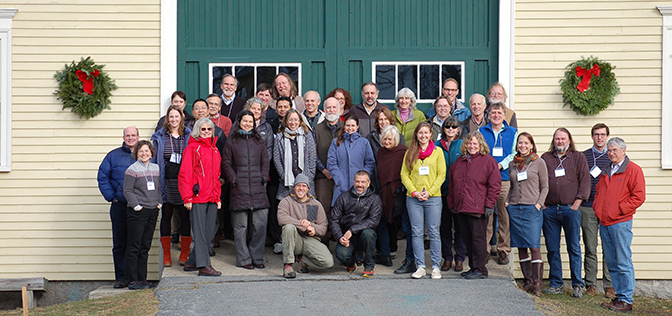The Wrack
The Wrack is the Wells Reserve blog, our collective logbook on the web.
The Wrack is the Wells Reserve blog, our collective logbook on the web.
We are putting teachers on the estuary again this summer by offering a free workshop that will give educators data-driven climate change activities to bring back to their classes. The workshop will train up to ten educators in reserve-style environmental monitoring, "coastal blue carbon" concepts, and ways to understand and address climate change.

WELLS, Maine, December 8, 2014 — Scientists from around New England met at the Wells National Estuarine Research Reserve on December 5 for a workshop focused on “blue carbon” science and policy. For the first time, scientists from throughout the region gathered to share research results, identify gaps in knowledge, and plan future collaborations involving carbon in coastal habitats.
The term “blue carbon” refers to the ability of salt marshes, seagrass meadows, and mangrove forests to take up and store carbon dioxide and other greenhouse gases from the atmosphere. Coastal wetlands capture carbon and store it at rates even greater than rainforests.
“Carbon held naturally in coastal wetlands is not entering the atmosphere as a greenhouse gas, so these habitats have real potential to mitigate climate change,” said Dr. Kristin Wilson, Wells Reserve research director, who co-coordinated the workshop.
Create a U.S./Canada working group, identify research gaps, and establish a regional approach to blue carbon science and policy.